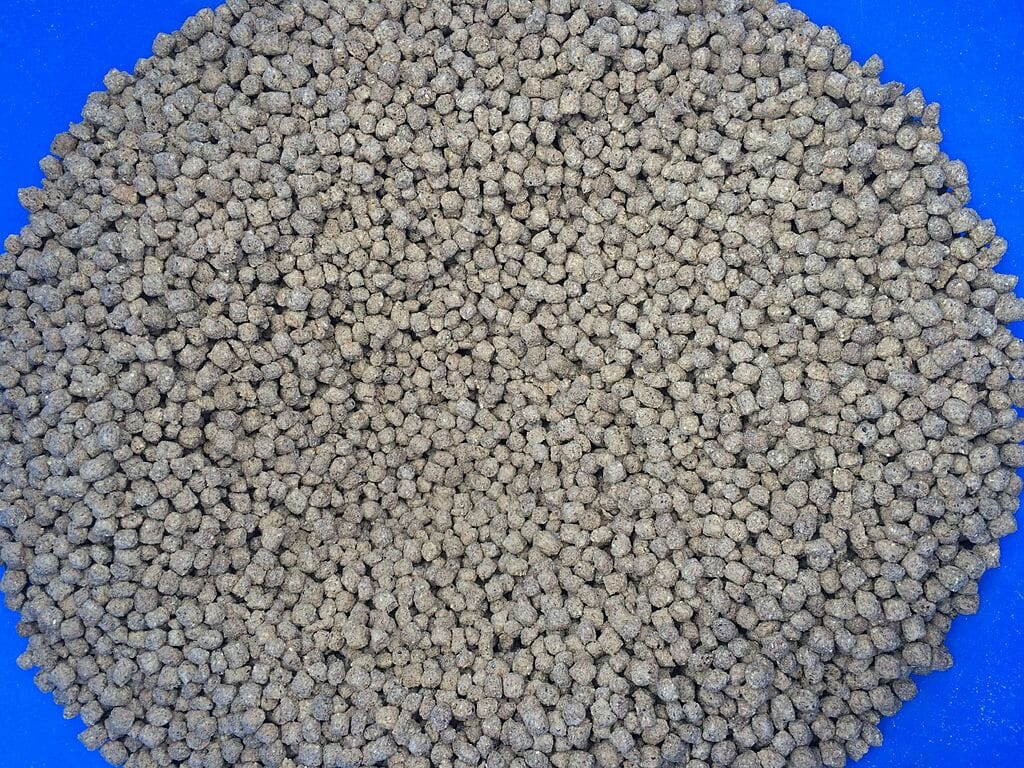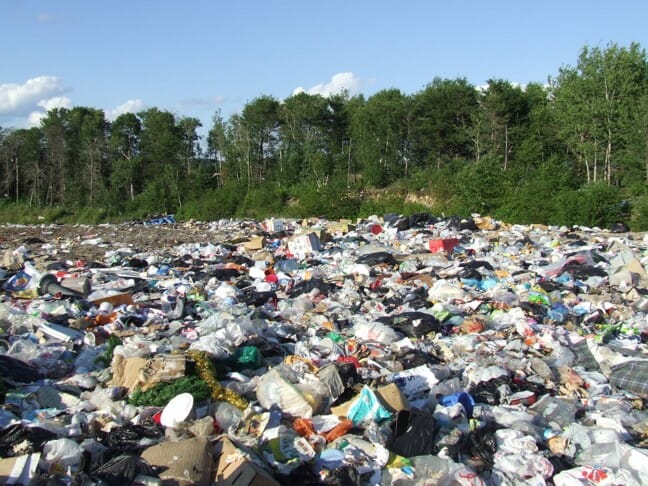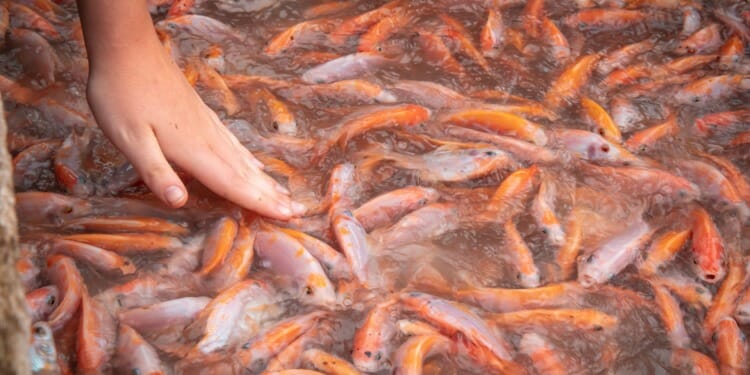A promising alternative way to feed fish, and to offset methane emissions, has made progress towards being implemented, thanks to researchers from Stanford University.
The study, published in Nature Sustainability, examines the potentially cheaper way of feeding fish with bacteria, that is fed by methane, as an alternative to regular fishmeal, which could also offset methane emissions produced as a byproduct of other processes. The research looks at how this could be feasibly implemented on a wider scale, with evidence that it could significantly reduce fishmeal costs.
This method uses bacteria that are methanotrophic, meaning they eat methane as a source of carbon, which they can then use to extract nutrients in order to grow. These methanotrophic bacteria are placed in a pressurised tank, or bioreactor, and fed nutrients including methane. The bacteria are then harvested and dried to create a biomass that serves as an alternative to fishmeal, which is usually made out of cooked and dried fish.
Global demand is increasing for fish protein, which makes it a challenge for farmers to keep up with supply. With the global population set to hit 11 billion by 2100, and 800 million alive currently undernourished, there is a need for the agricultural sector to adapt and pursue this issue from a sustainable perspective. In many countries which suffer from undernourishment, fish counts for one third of total animal protein supply.
Using methane suggests a solution that is cheaper and potentially more sustainable, as it would not require fishmeal to be made from actual fish. The most recent research, including this study, indicates that where methane is extracted from oil and gas plants, the production of methanotrophic fishmeal is cheaper than the market price of typical fishmeal, being $1,531 per ton compared to $1,600. Research also suggests that the use of microbial protein, which includes methanotrophic bacteria, could avoid the use of over 100 million hectares of cropland – which has its own impact on the environment.

It should be noted that fishmeal makes up a part of a fish’s diet, but not all of it. Sahar El Abbadi is the lead author of this study, and a lecturer in Civic, Liberal and Global Education at Stanford. She hopes that with more research it could replace more. “I think there’s approval within the EU to replace about 20% of fishmeal and the diets of farmed animals… as technology develops and we understand this bacteria more, there’s a lot of promise that it could replace more, as you tailor the diet to the nutritional needs of the fish and what life stage they’re in.”
What’s more, methane is a natural byproduct of many industrial processes, as well as being produced at landfill sites and wastewater treatment plants. Because the greenhouse gas is more potent than CO2, it drives around 25% of today’s warming, despite the fact that it is less prevalent in the atmosphere. Researchers calculate that based on the stranded methane available to be extracted in the US, and how the technology could scale in a way that would be cost-effective, it could offset 14% of the global fishmeal market’s emissions.
However, they are looking beyond offsetting oil and gas, the most common way of feeding these methanotrophs – in part because, hopefully, these will be phasing out of production in the coming decades. “There are a couple of companies right now that are in the process of commercializing the use of methanotrophs… using natural gas from the grid,” El Abbadi says. Her post-doctoral research focuses on how landfills can be used instead. Wastewater treatment plants are also a promising option.
Related Articles: New Research Discovers Bacteria That ‘Eats’ Methane | Sustainable Agriculture is the Key to Ending Hunger | How to Make Agriculture Carbon-neutral: Lessons from Denmark
The advantages of using wastewater treatment or landfills are that neither perpetuates fossil fuel extraction, and both tend to be much closer to populated areas. Moreover, El Abbadi explains, “the potential for nutrient capture from wastewater treatment plants,” which includes other minerals the bacteria feed on, such as nitrogen and phosphorus, “is one promising potential option down the line.”
In the aftermath of COP26, pleas for climate action are more urgent than ever, and with ensuring pledges to cut methane emissions by 30% by 2030, technology like this has real relevance when it comes to innovating our way out of both a changing climate and increasing consumption.

And of course, this process is in the fairly early stages of development, and some way away from widespread implementation, but with companies already trying to commercialise its use, it is a question of now figuring out how to make sure it can be widespread and even more financially viable.
“Cooling the bio-reactor itself is also a main source of electricity consumption for this system,” says Saher, with it amounting to about 45% of total costs. “One potential is selecting for bacteria that can grow at a higher temperature.” This is because of the heat created by the bacteria in the process. Other possibilities include using on-site solar power and using some of the stranded methane to power gas-powered equipment.
The potential here is clear, and not only for this, but for other avenues of sustainable development in the animal feed industry. “If we can advance this technology now and make it cost-effective with methane, there are researchers who are also looking into using bacteria that eat hydrogen as animal feeds as well, so I think that this could open the door in that direction for renewably-produced hydrogen.”
The results are promising so far – with the potential to have really significant impacts on the global food industry as a whole. To what extent this will change the animal feed industry, and how it might affect carbon capture methods, remains to be seen – but we know the technology works, and is cheap. But now comes the difficult part of applying it on a larger scale. Undoubtedly, however, this is a promising glimpse into the future.
Editor’s Note: The opinions expressed here by Impakter.com columnists are their own, not those of Impakter.com. — In the Featured Photo: A fish farm in Vietnam. Featured Photo Credit: Milo Weiler.










